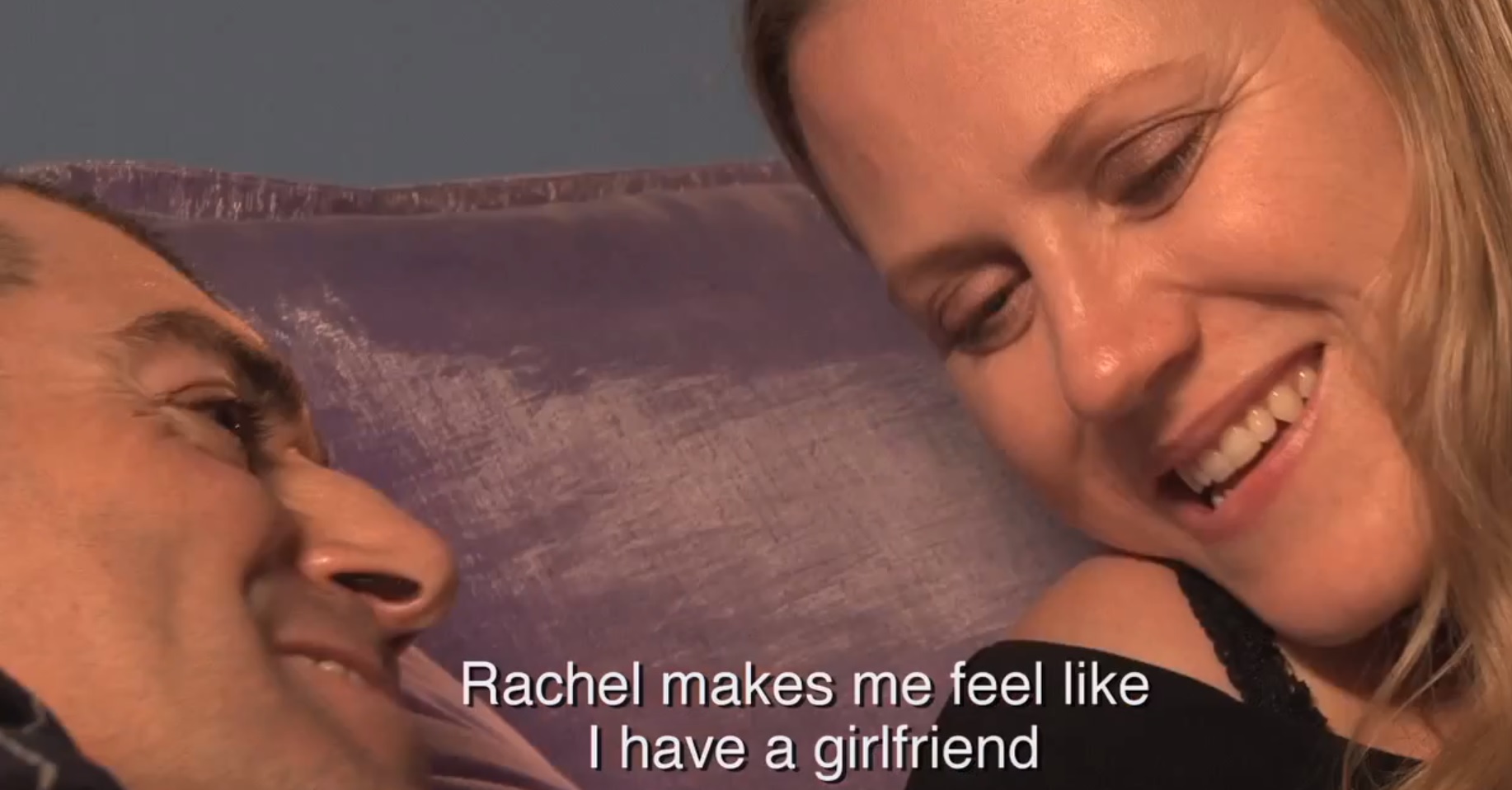
Are intimacy, connection and touch any less different if one has to pay for it? Are they any less different if one is not able-bodied?
Scarlet Road, directed by Catherine Scott, follows Australian sex worker and activist Rachel Wotton as she visits various friends and clients, educates fellow sex workers and travels to parts of Europe. Wotton has been in this industry for more than 16 years. In fact, she admits she’s always been drawn to it. She resides in New South Wales, Australia, one of the few places in the world that has decriminalized the sex industry. At least in principle, they can operate like “any other business.”
John Blades, who has multiple sclerosis and is wheelchair-bound, is one of Wotton’s many clients. The time they spend together makes him feel normal and at ease with himself, like an “able-bodied person within a disabled shell,” he says. The director does a fine job of filming their scenes in a tasteful fashion.
Wotton also travels to Gothenburg, Sweden for the World Congress for Sexual Health in order to talk about her unique experiences and her work for Touching Base Inc., an organization which helps people with disabilities and sex workers in matters of “access, discrimination, human rights and legal issues.” During the conference, Wotton’s ability to articulate her experiences and concrete facts is noted by her audience, a trait which is far different than those who come from a purely clinical and academic background.
Scott also follows Wotton in her personal life. Although Wotton would like to move to Queensland, Australia in order to be with her longtime boyfriend, there are complications because the sex work industry is illegal in that part of the country.
This is a thoroughly engaging film regarding a subject seldom discussed so openly. Scott allows Wotton to share her story through her own words and actions, rarely interfering and focusing both on sexual education and narrative honesty. As an observational documentary, it aims for immediacy between subject and audience. In fact, it feels as though the camera is working as a therapeutic device for a woman who likely faces frequent discrimination in such a stigmatized industry.
Wotton’s happy-go-lucky attitude is particularly endearing. She admits why she chooses differently-abled people as clients, “I like the fact that my job always entails pleasure, making someone feel better about themselves, that they are the centre of someone’s attention and they deserve to smile.”
Scarlet Road screens Monday April 8 at 7 p.m. in Room H-110, 1455 de Maisonneuve West. The event is co-presented with STELLA. Rachel Wotton will be in attendance for a post-screening Q&A. For more information, visit www.cinemapolitica.org/concordia.




